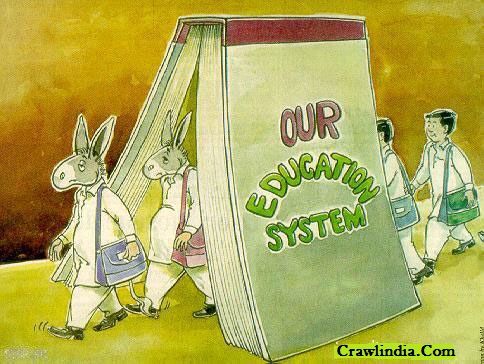What is Stopping Adoption of Technology in Education in India? A School's Insight
Education is a very large industry in India and around the world. Most educational institutions strive to meet business targets through the highest marks and the best results. Theoretically, marks are meant to be an indicator of the amount of disseminated knowledge grasped by a student. However, marks are also just numbers. Currently, it is this number that is the most important, and the most amount of emphasis is laid upon attaining a desired number.

Learning, which was the main purpose of the educational institution to start with, is prioritized lower.On the other hand, technology empowers. Take communication; the mere act of conveying a message to someone can be done over so many different mediums which are not dependent on distance. In mathematics; computer programs can now predict how economies will behave.
The same is true with education. In our recent EduStars campaign, featuring the top educational startups from India, we discovered some educational startups that could truly revolutionize the way our children learn in this day and age, if they were to become mainstream; If, being the keyword.
Differences in Pedagogies
There is a fundamental difference in the ends that conventional education and the new technology based education solutions aim to meet. While the conventional system's are driven by marks and percentages, the technology based solutions are looking to make learning more effective. Ideally these pedagogies should coexist, but marks are paramount and anything unconventional carries the potential risk of affecting the same.

Rohit Pathak, MD of an Selaqui International School, has over 15 years of experience in the field of education. He believes that the current education system is one of the biggest barriers for technology aided education going mainstream. He says, “Today's online and technology based education solutions do not conform to the current system. The system is too marks oriented and even we are guilty of it. As the MD of this school, I'm looking to hire teachers with experience teaching in schools like Kendriya Vidhyalaya or a DPS due to their experience in adhering to this system.”He further goes on to say that technology acceptance is also halted by resistance from teachers. “We have so many innovative ways of teaching that we train our teachers in, and what we see is that they don't put these techniques to use. Although they are quick to put these techniques on their resume's!”
Another conflicting ideology between the two is customization. The current system of homogeneously addressing an average of the learning capacity of a classroom is regressive and ineffective. This is shown in the quality of graduates that India generates every year. Learning has always been effective when it has been personal, and one of the main aims of educational technology solutions' is to make learning as customized as possible.
A Marketing Gimmick?
“What came as a shocking revelation to me was how schools look at technology solutions. Most schools adopt technology solutions to show their potential customers that they have it. The technology companies are partly responsible for this as well. They market their products in such a way that they make a school look worthless without them. So all schools will buy the product and keep it for display, yet the students hardly getting any time on it,” shared Rohit Pathak.
This is alarming and disheartening, and a perfect example of purposes being dissolved in the process of making a balance sheet look good. However, the startups, or the educational institutions cannot be blamed for this; capital is important. The real question to ask here is this; if the purpose of a business itself is defeated in the process of generating capital, how long will it be sustainable?
Technology is the Way Forward; Less Teachers, More Mentors
India is suffering from a demographic bulge. Our country's average age is very young, which means we have a lot of young people to educate. The existing infrastructure will never satisfy the country's educational needs, and we need to deliver quality education independant of infrastructure. Today, technology solutions are already doing that, and this is evident in success stories of companies like MeritNation.
These solutions cannot remain a supplement to the current education systems. The quicker these solutions become more mainstream, the earlier we can provide quality education to the ever increasing population that needs it.
The concept of the teacher needs to be phased out. A recording of a good lecture or an interactive way of teaching a concept is far more effective than what a teacher could ever be. That being said, human intervention and mentoring is something technology can never do.
I personally think that teachers need to evolve into mentors, and let the machines disseminate information. Unfortunately, most of our country's teachers only disseminate information and often overlook mentoring.






